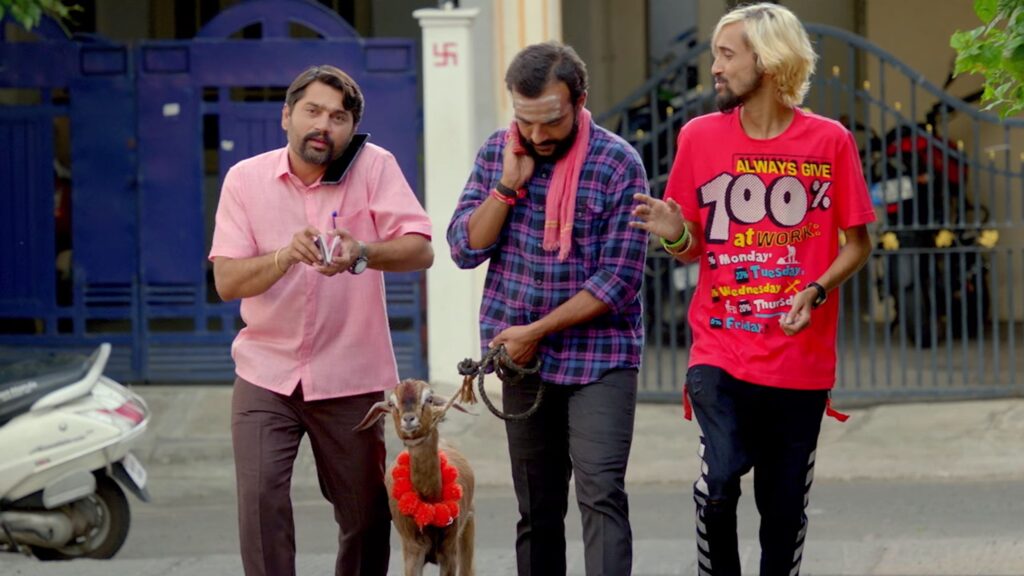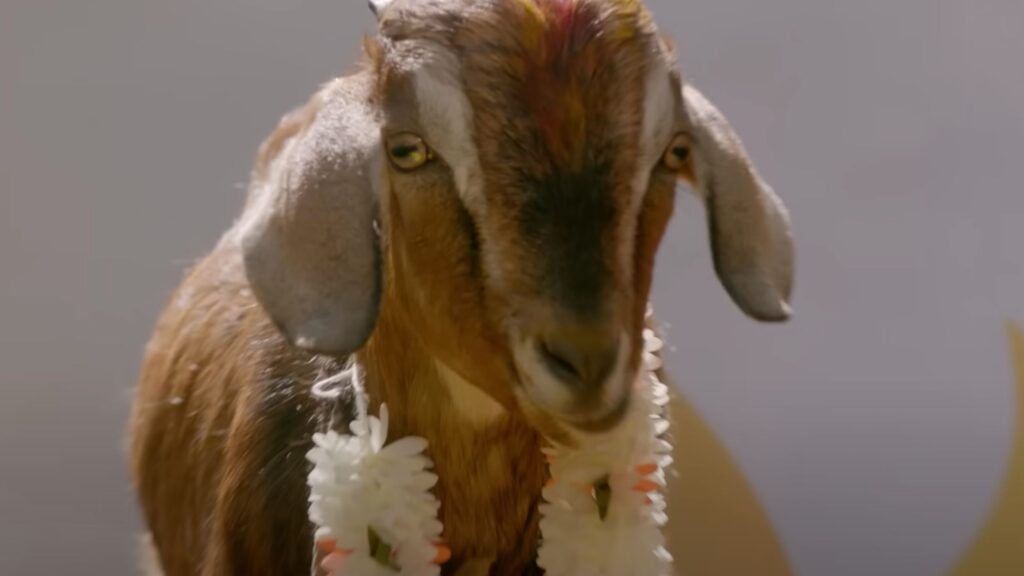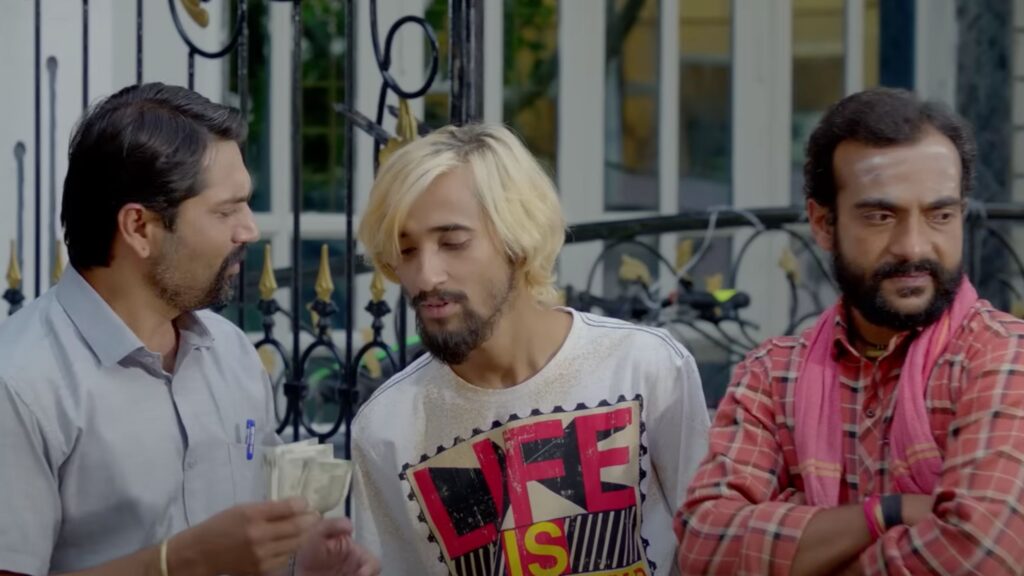“Aade Nam God” is a film that delves into the manipulation of beliefs and how people can easily be swayed by such beliefs. It explores the story of four young men – Damu, Shivalingu, Tuk, and Tippeeshi – who are struggling to make ends meet during tough times, like the COVID pandemic. They resort to unconventional means to earn a living, including bringing an orphaned goat to a temple, which leads to a series of unexpected and humorous events.

As the goat becomes a part of their lives, strange incidents start happening, and people around them begin to believe that the goat possesses superpowers. The film highlights how easily people can be influenced by such beliefs and the consequences of exploiting them. Director P.H. Vishwanath’s “Aade Nam God” takes this premise and weaves it into a narrative where thousands of gods are created within gods, including Aadu Swami, a speechless creature turned into a deity believed to hold the solution to all human suffering.

The film also touches upon the belief that God did not create man, but rather man created God, a notion present in science. In accordance with this belief, people sometimes misuse the beliefs of others and create various gods in the name of those beliefs, making money from it. Such stories of manipulation are heard from time to time, even in the present day.

While “Aade Nam God” has its share of comic punches and attempts to engage the audience with a unique story, it could have benefited from more precision in delivering its core message. Some of the comedy sequences may feel forced, but overall, the film makes a decent attempt.

The cast, including Nataraj, Manjunath Jambhe, Ajit Boppanahalli, Anoop Shunya, and others, do justice to their roles. B. Suresh’s portrayal of a divine being adds depth to the film, and two songs by Swaminathan in the film catch your attention.
In conclusion, “Aade Nam God” is a film that may appeal to those who enjoy stories with a unique twist. However, it needed a bit more finesse to reach its intended audience. Nevertheless, it effectively explores the story of manipulation of beliefs and how easily people can be swayed by them.













